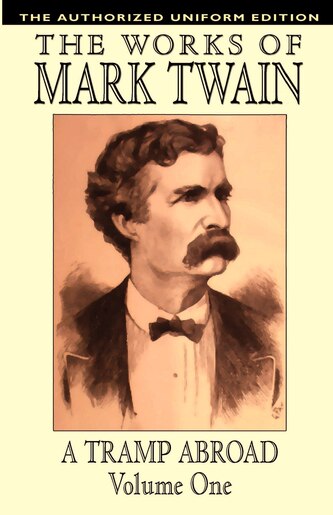Mark Twain Travel Books
Mark Twain’s travel writing. Twain was lucky enough to be able to travel quite a bit during his lifetime, and he detailed those experiences most famously in The Innocents Abroad, which is one of the best-selling travel books ever written, and Twain’s best-selling book during his lifetime. The book details his experiences traveling to Europe.
In Following the Equator, his last travel book, Mark Twain shares an anecdote about an “elderly lady and her son” who, because of a series of mishaps, have traveled well beyond their original itinerary, getting further from home all the while. “Think of it,” he writes, “a projected excursion of five hundred miles gradually enlarged, without any elaborate degree of intention, to a possible twenty-four thousand” (58). This short sketch serves as an appropriate symbol for Twain’s touring and travel-writing endeavors. In embarking on his own travel-book career with The Innocents Abroad, Twain inadvertently stepped into a world of travel writing that would carry him around the globe for the next thirty years, a beloved wandering “innocent.” Furthermore, it would allow him to become an author of unparalleled success, all “without any elaborate degree of intention” —at least in the beginning.

This extended “excursion” would prove fortunate for Twain and for millions of readers who have traveled with him.To view Mark Twain as a split, often conflicted personality is a popular approach to examining the man and his literary achievement. Although it may prove distracting or even tiresome to some readers, this approach remains helpful in ongoing efforts to understand his craft. Many readers have used this premise as a springboard, citing the dualities represented by the nom de plume itself—Samuel L. Clemens versus “Mark Twain”—but readers have also recognized the identity conflicts between the genteel writer and the wild humorist, the liberal humanist and the racist, among others. I am not interested in elaborating on any of those already formidable discussions, for as Twain stated in the preface to The Innocents Abroad, “other books do.
Subjects:. Twain, Mark, 1835-1910. Popular Culture-United States-History-19th Century. Americans-Foreign Countries-History-19th Century. Travelers' Writings, American-History and Criticism.
Voyages and Travels-History-19th Century. Twain, Mark, 1835-1910. Popular Culture-United States-History-19th Century. Americans-Foreign Countries-History-19th Century.
Travelers' Writings, American-History and Criticism. Voyages and Travels-History-19th Century. Travel Writing-History-19th Century. Tourism-History-19th Century. Subjects:.
Twain, Mark, 1835-1910. Popular Culture-United States-History-19th Century. Americans-Foreign Countries-History-19th Century. Travelers' Writings, American-History and Criticism. Voyages and Travels-History-19th Century. Twain, Mark, 1835-1910.
Where Did Mark Twain Travel

Popular Culture-United States-History-19th Century. Americans-Foreign Countries-History-19th Century. Travelers' Writings, American-History and Criticism.
Liberty Travel
Voyages and Travels-History-19th Century. Travel Writing-History-19th Century. Tourism-History-19th Century.
Winner of the Elizabeth Agee Prize for best manuscript in American LiteratureWith the publication of The Innocents Abroad (1869), Mark Twain embarked on a long and successful career as the 19th century's best-selling travel writer. Jeffrey Melton treats Twain's travel narratives in depth, and in the context of his contemporary travel writers and a burgeoning tourism culture. As Melton shows, Twain's five major travel narratives- The Innocents Abroad, Roughing It, Life on the Mississippi, A Tramp Abroad, and Following the Equator-demonstrate Twain's mastery and reinvention of the genre.